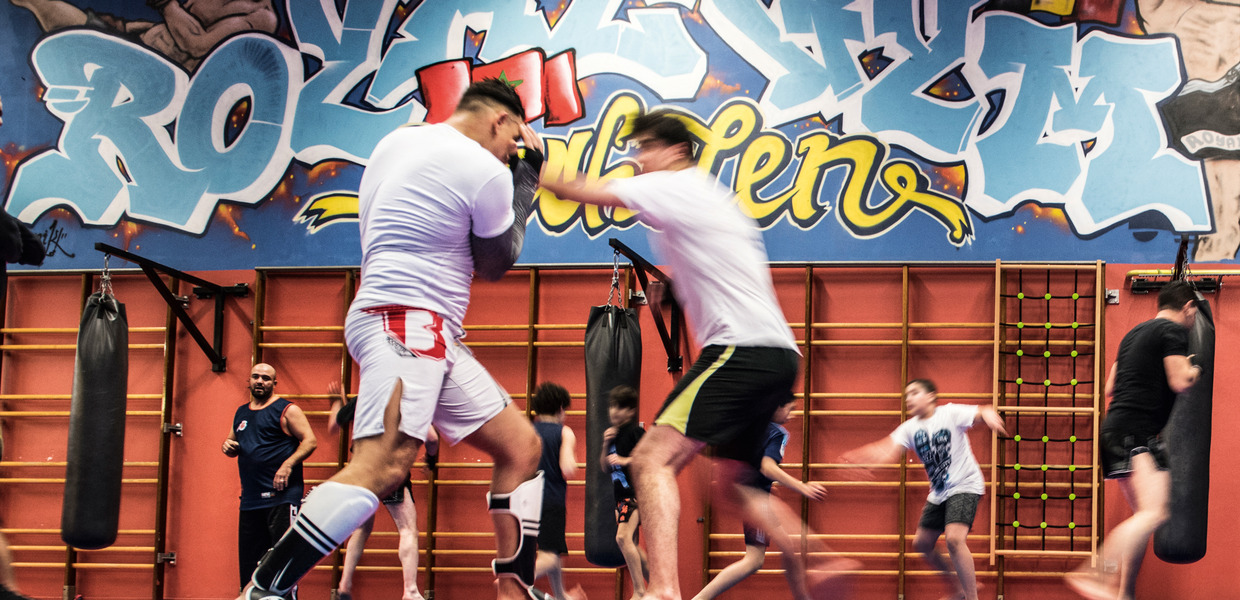A visit from the royal couple
Unsurprisingly, Bart Somers rarely misses the opportunity to point out the importance of the club's efforts, as well as the vision behind the ROJM youth center. Every day, as the center opens its doors, a number of children and youth come rolling in, many of them start playing football right away. “Normally, anyone can play football at any time,” notes Mohamed Belhadji, a social worker, “but on Saturdays, the first two hours are reserved for kids who've recently arrived as refugees.” The youth center wants to involve the newcomers from the start. Integration is at the heart of everything here. “We have about 1,000 youth here from over 100 nationalities,” explains Belhadji. This makes ROJM the most diverse youth center in the world. One place for everyone, that's the vision. Instead of having separate clubs for Moroccans, Egyptians, Congolese, Russians or Flemings, Mechelen has one ROJM. Everyone comes here to play sports, watch movies or record music. Today, ROJM can proudly point to professional footballers, hip-hop stars and Hollywood actresses who got their start at the center. Two years ago, as the youth center moved into its new facilities, Belgium’s royal couple paid a visit to the center with then-German Federal President Joachim Gauck to honor ROJM’s achievements.
In line with his efforts to maintain open lines of communication with the city’s stakeholders, Bart Somers also pays regular visits to the center as a guest. Maintaining this kind of exchange on a regular basis is one of the keys to his success, as his ability to bring these groups together. “We meet at regular intervals with societal groups to discuss things,” reports Yves Bogaerts who, as chief of police, has one of the city’s hardest jobs. Police in Belgium are still seen as not being particularly friendly toward migrants. When asked what needs to be improved in the city, Mechelen youth will point first to the police force. Bogaerts wants to change this. “Bringing diversity into the police force itself is my biggest challenge,” he says. However, he cannot influence local hiring. Instead, together with Bart Somers, he's developed a different approach. The city helps young migrants overcome the high barriers to entry into the Belgian police force. The hope is that at some point, the city’s police will benefit from these efforts. Everyone must talk to everyone – that’s the goal in Mechelen. The city's “Samen Inburgeren” (Integrating Together) initiative is emblematic of this idea. Since 2012, Samen Inburgeren has been bringing together the city’s citizens with its recently arrived newcomers. “In the beginning, their encounters are rather paternalistic,” says Bart Somers. A local shows “his” or “her” patronee the city. But when they actually get to know each other, emphasizes Somers, something else takes place.
